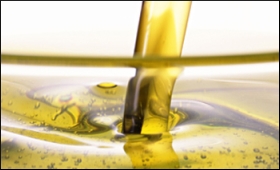|

|
Import duty may go on used cooking oil to boost bio-diesel use
|
|

|
|
| Top Stories |
 |
|
|
|
SME Times News Bureau | 11 Feb, 2016
The government is considering removal of import duty on used cooking oil
for its conversion into bio-diesel in a move aimed at pollution
control, Road Transport Minister Nitin Gadkari said on Wednesday.
"We
will be withdrawing (import) duties on that oil. If that oil comes in
the country then bio-diesel will be made from it," he said, while
addressing a summit here on smart cities organised by the Associated
Chambers of Commerce and Industry of India (Assocham).
"I have
requested Commerce Minister Nirmala Sitharaman to withdraw duties on
import of fried oil, which is often discarded as waste after being used
once and is available in abundance across the world," he said.
"If
that oil comes in our country it will help in making bio-diesel and its
cost is about Rs.3-4 per litre cheaper than petroleum diesel, and when
we will withdraw duties imposed on the same, its price will come down by
another Rs.6-7 per litre," he added.
The minister urged farmers
from Uttar Pradesh, Bihar, Maharashtra, Tamil Nadu and Karnataka to
switch from sugarcane to ethanol production so as to contribute towards
reducing pollution.
He also said that in the times ahead, use of
electric cars and buses would be promoted for transportation in smart
cities to reduce air pollution and provide cost-effective transport.
There
is a plan to run 100 buses on ethanol, while cost-effective electric
cars are also on the anvil with Indian scientists currently developing
lithium batteries for buses at a cost of around Rs.5 to 6 lakh, compared
to the global average of Rs.55 lakh, Gadkari said.
A study is
soon to be completed on minimising pollution through disposal of garbage
by burying these under highways and expressways to be constructed, the
minister added.
|
|
|
| |
|
|
|
|
|
|
|
|
|
|
|
|
|
|
| |
| Customs Exchange Rates |
| Currency |
Import |
Export |
US Dollar
|
66.20
|
64.50 |
UK Pound
|
87.50
|
84.65 |
Euro
|
78.25
|
75.65 |
| Japanese
Yen |
58.85 |
56.85 |
| As on 13 Aug, 2022 |
|
|
| Daily Poll |
 |
 |
| PM Modi's recent US visit to redefine India-US bilateral relations |
|
|
|
|
|
| Commented Stories |
 |
|
|
|
|
|
| |
|